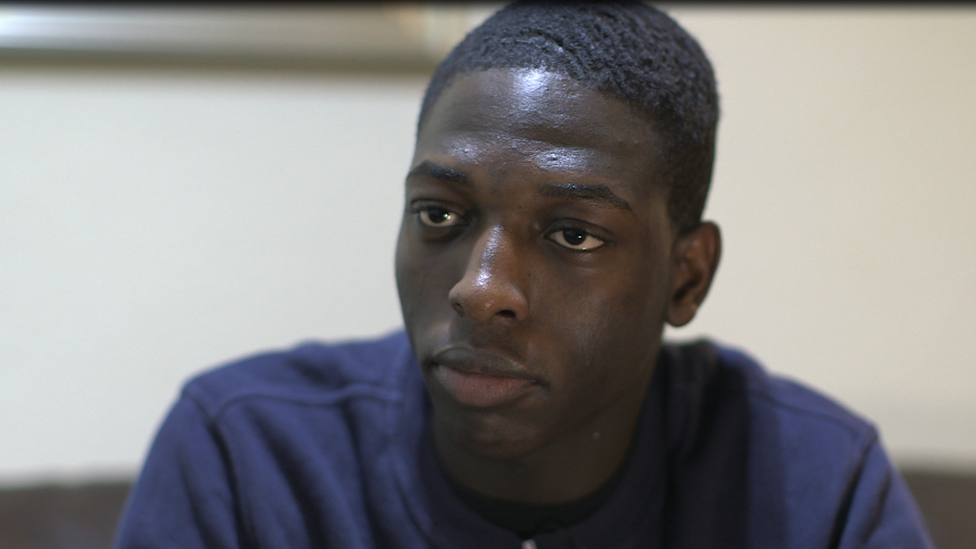A childhood shoplifting offence 'stops me being British'
- Published
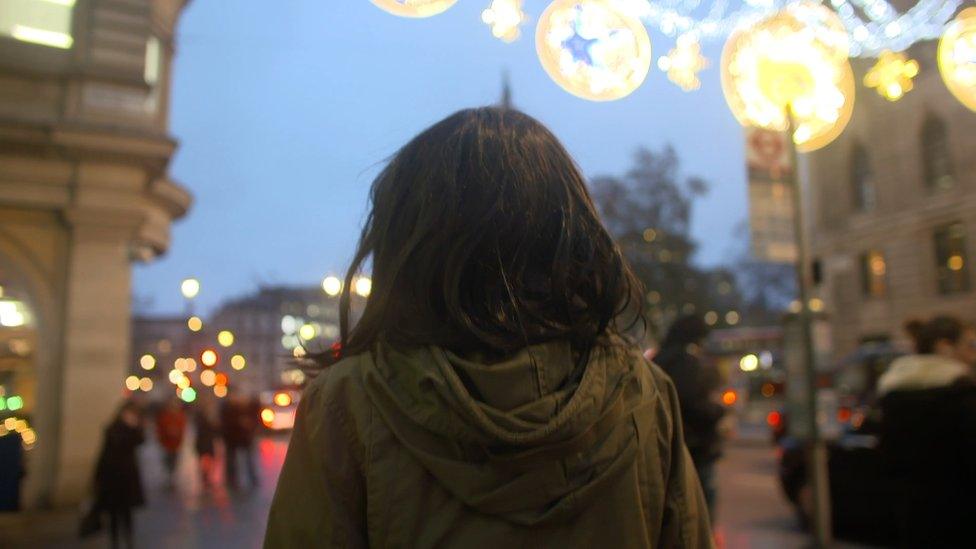
The "good character" test takes into account offences committed over the age of 10
More than 500 children have been refused British citizenship due to their contact with the criminal justice system from the age of 10, campaigners' figures since 2006 suggest. One woman, born in the UK and who now works full time, explains how a series of shoplifting offences as a teenager means she could be at risk of deportation.
"I still see myself as British but this process has done everything it can to make me feel like I don't belong here," Carla - not her real name - tells the BBC's Victoria Derbyshire programme.
"I feel isolated and trapped - and anxious about my future."
Carla, now in her 20s, was born in the UK and has never been abroad.
But after she applied for British citizenship a few years ago so that she could acquire a passport, she was told her application had been denied - leaving her at risk of deportation.
She says the Home Office informed her this was because she had failed the "good character" test, an assessment carried out on all citizenship applicants, in which they must be deemed to be, external "of good character on the balance of probabilities".
There is no definition as to what makes a "good character" but any contact with the criminal justice system from the age of 10 can influence the decision.
The policy has been heavily criticised by campaigners, who say it is unjust to treat a child by the same standards as an adult and in some cases people have been denied the right to live and work in the UK for petty theft, cautions or fights at school during childhood.
In other cases, offences can be more serious, such as robbery.
The Home Office has said that a review of the policy has been completed and "revised guidance would be published soon".
'Sad, depressed 13-year-old'
Carla - who did not acquire citizenship at birth because her parents were not settled in the country - was arrested several times for shoplifting between the ages of 13 and 15.
"The Home Office letter didn't go into much detail but it looks like my offences from years ago - and not including them in my application [in confusion over the term 'unspent convictions'] - are why [my case was rejected]," she says.
The age of criminal responsibility in England and Wales is 10 years old.
When it is put to Carla that she was older than this at the time, she says she accepts full responsibility for the shoplifting and was given fines and community service.
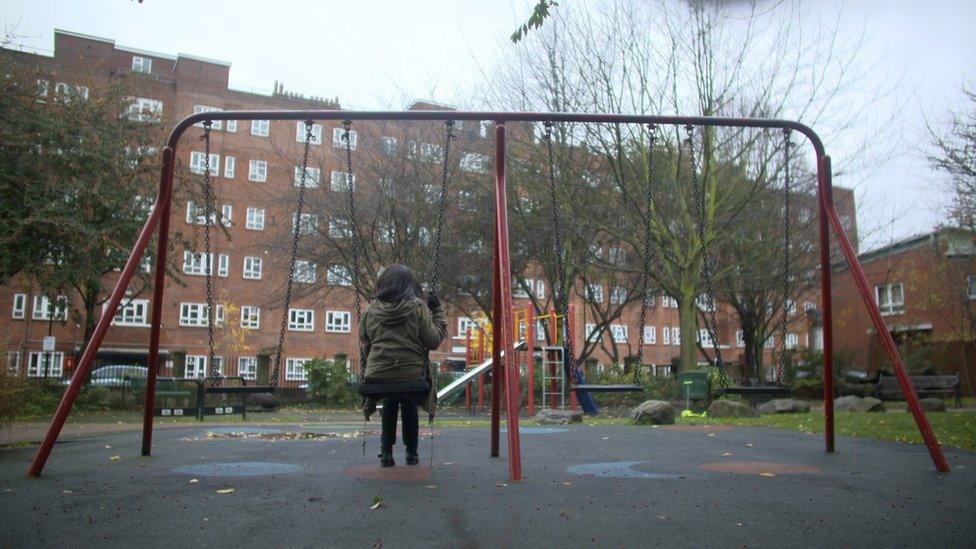
But she adds that she does not understand why it is considered relevant to her citizenship case.
"[At the time] I didn't have a good relationship with my family, so when I was a teenager I used to roam about. I didn't have any money - so I got arrested several times for shoplifting.
"But now I feel so completely removed from that lost, sad, depressed 13-year-old. I have a good job and I'm a good person," she says, having also been to university in the UK.
'Punishes children twice'
It is an argument Zubaida Haque, from race equality think tank Runnymede Trust, agrees with.
"Stripping children of entitled British citizenship because of often minor contact with the criminal justice system not only punishes children twice, it removes their sense of future, hope and belonging," she says.
"This issue is not just about harshly and inappropriately applying good character requirements to children entitled to British citizenship, it's about children's rights and welfare."
In 2017, a report by the chief inspector for borders and immigration, external assessed the good character requirement, highlighting concerns that it did not differentiate between criminal convictions committed by children and adults.
The government accepted its recommendations and said it would publish new guidance in December 2017 - but a year later, this has not materialised.
The Home Office said its revised guidance, to be "published soon", would "make clear that consideration of the child's best interests must be a primary consideration when making decisions that affect them".
"It will also make it clear where discretion can be exercised," it added.
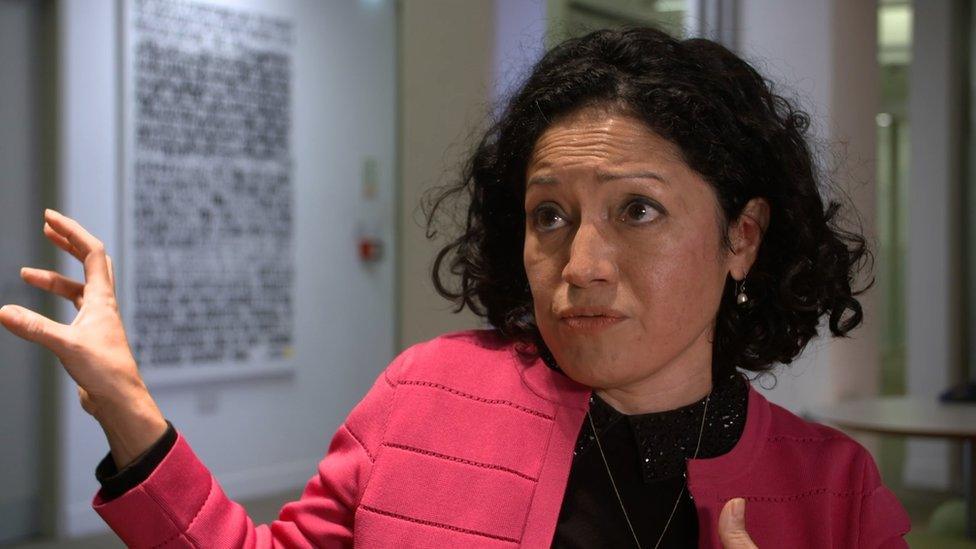
Solange Valdez-Symonds describes the policy as "cruel"
Lawyer Solange Valdez-Symonds, from the Project for the Registration of Children as British Citizens, says she hopes this new guidance will be put in place soon, having advised on such cases for six years - all involving people from BAME [black, Asian and minority ethnic] communities.
She says many of those affected have also spent time in care or have learning difficulties.
"I see the policy as being a cruel one. There's so much injustice in it," she says.
She says in one case an individual was denied citizenship because as an 11-year-old they had taken a credit card from their foster parents' home and bought something on the internet, for which they received a caution from police.
'Racist system'
For Carla, the good character requirement represents a "racist system".
She believes that had she been white, past offences as a child would have been overlooked.
She talks openly about how she had always looked forward to becoming a British citizen, thinking it would be "the happiest moment of my life".
But while she stills hopes it will happen, Carla says she can't help but feel resentment "for everything that has happened".

Follow the Victoria Derbyshire programme on Facebook, external and Twitter, external - and see more of our stories here.
- Published2 May 2018
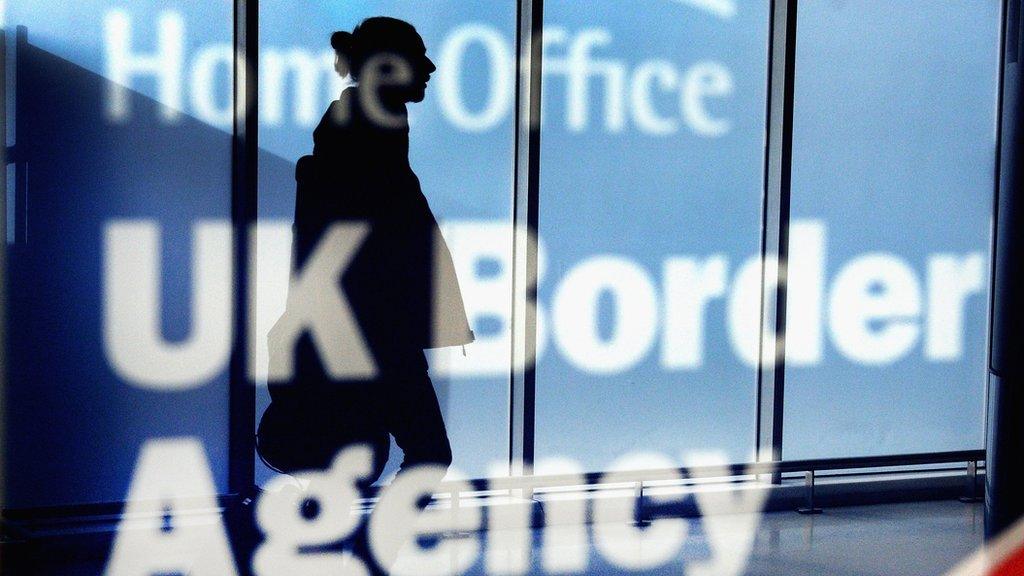
- Published13 February 2018
